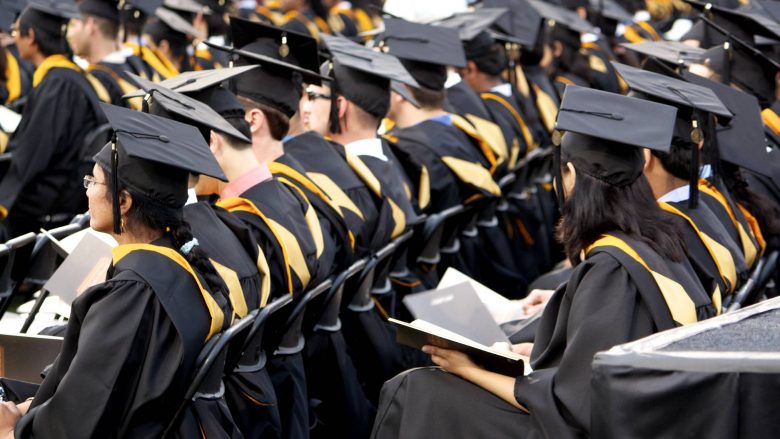College graduate gap projected by 2022, state says
By State House News Service | June 8, 2016, 19:48 EDT
 Will there be enough of these coming out of Massachusetts public colleges and universities by 2022? (Photo courtesy of Flickr.com)
Will there be enough of these coming out of Massachusetts public colleges and universities by 2022? (Photo courtesy of Flickr.com) BOSTON – Massachusetts boasts a higher proportion of college-educated adults than any other state, but could see that number decline instead of grow within six years unless public college enrollments grow and more students complete their degrees, according to a new state report.
Titled “The Degree Gap,” the report released Wednesday by the Department of Higher Education says shifting demographics mean public colleges and universities will likely fall short of meeting the need for graduates with associate and bachelor degrees by 55,000 to 65,000 people.
“With the majority of undergraduates in Massachusetts now attending our public higher education institutions, it is incumbent on all of us to ensure greater accessibility, more robust completion, and less variation in outcomes across the diversity of students we serve,” department Commissioner Carlos Santiago said in the report.
As many as 660,000 college-educatedMassachusetts workers plan to retire over the next 10 years as the population ages, while the number of students in high school continues to decline, the report says. Currently, 51.5 percent of Bay State adults 25 to 54 hold college degrees, according to the department.
To increase the number of graduates from public institutions and fend off a decline in the college-educated workforce, Santiago called for a focus on making public schools more accessible and affordable, closing achievement gaps, and improving completion rates.
A plan outlined in the report calls for the creation of “more affordable pathways to — and through — college,” citing the recently launched Commonwealth Commitment program as one example.
Announced in April, the Commonwealth Commitment program will offer rebates to qualifying students who transfer to a four-year public university from a community college, for an average savings of around $5,000 off the cost of a baccalaureate degree.
Other suggestions include expanding dual enrollment and STEM early college opportunities, creating additional high school partnerships and events, mapping “seamless, statewide transfer pathways from two-year-colleges to four-year universities,” and overhauling developmental and remedial education programs.
In hopes of closing achievement gaps, the report calls for increased support and opportunities for “low-income male students and male students of color who are at risk of not entering or finishing college.”
Lt. Gov. Karyn Polito said the report highlights a need to “prepare our workforce to fill jobs which are currently going unfilled, and help employers find skilled employees in the future.”
“It’s clear we need more degree earners and certificate program graduates, including those in the critical STEM fields, and I am pleased our administration has already taken steps to start tackling these challenges,” Polito said in a statement.
Written by Katie Lannan











